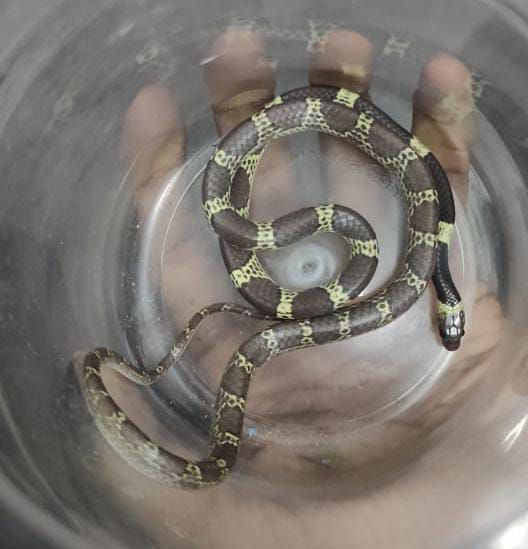Snake Rescues Under Spotlight: Expert Calls for Safety, Training and Legal Compliance
- Dr T K Saravanan
- Sep 21, 2025
- 3 min read
Coimbatore | September 2025
Snake encounters and rescues are becoming increasingly common across Tamil Nadu, often attracting both admiration and alarm. In the wake of recent fatalities, including the tragic death of a snake rescuer in Coimbatore, First Heart Foundations Network has released a public advisory, stressing that rescues must be carried out with caution, training, and strict adherence to the law.
The message comes narrated by Mr. Saanthakumar, Wildlife Rescue Expert, and drafted by Dr. K. Saravanan, Safety and Disaster Management Specialist.

Snakebites: A Silent Killer in India
According to World Health Organization estimates, India loses nearly 58,000 lives to snakebites every year. Tamil Nadu alone reported 43 deaths in 2023, with multiple cases already this year. Most victims are civilians — farmers, laborers, or children in rural households — who face delays in reaching hospitals or fall prey to myths and unscientific remedies.
“Snakebite deaths are not merely accidents; they are a public health tragedy,” said Mr. Saanthakumar. “While civilians are the most affected, even rescuers — considered professionals — sometimes fall victim.”

Why Even Rescuers Get Bitten
Despite years of experience, rescuers are not immune to danger. Bites occur due to:
Overconfidence or complacency.
Lack of personal protective equipment (PPE).
Stressful rescue environments with crowds or poor lighting.
The unpredictable behavior of snakes.
“These deaths don’t mean rescuers are incompetent,” Mr. Saanthakumar clarified. “It means every rescue demands humility, preparation, and respect for the animal.”
Skills and Qualities of a Rescuer
A true rescuer, he emphasized, needs more than courage. Essential qualities include:
Knowledge of snake biology and behavior.
Patience and calmness under stress.
Crowd management and public communication skills.
First-aid awareness in case of bites.
Above all, ethical responsibility towards both people and wildlife.
Precautions: Do’s and Don’ts
The advisory highlights golden rules for rescue operations:
Do’s
Use proper tools like hooks and secure bags.
Keep bystanders at a safe distance.
Work in adequate lighting.
Inform authorities after capture.
Don’ts
Never attempt bare-hand handling.
Don’t provoke, corner, or fatigue the snake.
Avoid showing rescues as stunts or social media spectacles.
Protective Gear Still Ignored
Personal protective equipment remains underutilized among Indian rescuers.
Recommended PPEs include:
Gumboots or snake gaiters.
Thick trousers.
Cut-resistant gloves.
Eye shields (in areas with spitting cobras).
“Rescuers in rural India often work in slippers and bare hands,” lamented Mr. Saanthakumar. “This must change. PPE is as important as the rescue tools themselves.”
The Law: Wildlife Protection Act, 1972
The Wildlife Protection Act, 1972 clearly states that snakes are protected species. Catching, killing, or keeping them without Forest Department approval is illegal and punishable.
“Only trained and authorized rescuers are permitted to relocate snakes,” explained Dr. Saravanan. “Unauthorized attempts put lives at risk and invite legal action.”

Guidance for the Public
For civilians who encounter snakes, the message is clear:
Do not attempt to catch or kill the snake.
Keep a safe distance and restrict access to the area.
Call the Forest Department or recognized NGOs for safe removal.
“Every time someone tries to kill a snake, it creates more risk — both to people and to our ecosystem,” Mr. Saanthakumar added.
Building a Safer Future
The press note calls for:
Standardized training and certification for rescuers.
Greater collaboration between NGOs and government departments.
Awareness campaigns to debunk snakebite myths.
Support for PPE and rescue tools at the community level.
“Snake rescue is not about heroism — it is about responsibility,” concluded Mr. Saanthakumar. “We must protect both human lives and wildlife, and that balance comes only with competence, humility, and respect for the law.”
Issued by:
First Heart Foundations Network
Coimbatore, Tamil Nadu
Drafted by Dr. K. Saravanan, Safety & Disaster Management Specialist
Narration by Mr. Saanthakumar, Wildlife Rescue Expert



Comments